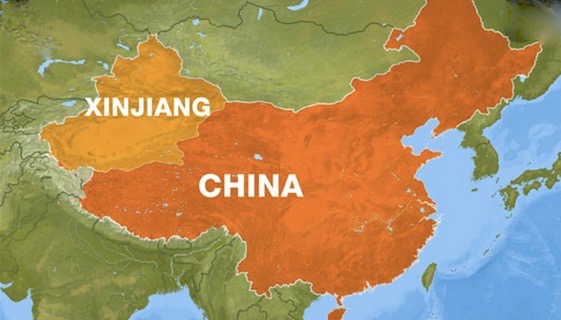TIA CARR WRITES – The United Nations has recently called for an “immediate and unfettered access” to the autonomous region of Xinjiang, China. This echoes rapidly growing international humanitarian concerns regarding the status of more than one million muslims who have been detained without trial.
Efforts have been made for the past four years to improve conditions for minorities in Xinjiang, with little to no avail. The United Kingdom, admirably, is spearheading the recent effort, following up on a joint statement issued by 22 countries in late July 2019. Evidence has been released through the International Consortium of Investigative Journalists (ICIJ) that the “voluntary political reeducation” camps in the region are actually functioning as arbitrary detention centers unfairly targeting Uighers and other Turkic muslims.
Xinjiang, a territory in China’s northwest of mainland China, has experienced several brief periods of independence, but is back under Beijing’s control. The population of some 40% Han Chinese are said to be the recipients of the best jobs, economic benefits and future prospects. When protests broke out in 2017 over socioeconomic inequality, the Chinese government cracked down. Beijing argued that its efforts were to counter terrorism, and that these camps were the best methodology to do so.
Beijing also now touts “ethnic unity” in the region, but this “unity” only entails the detainment of Uighers and other minorities, along with an apparently growing cultural genocide.
A recent spectacular media leak of PRC government documents has given the international community confirmation of the human rights abuses and cultural genocide in Xinjiang. To many western humanitarian groups, these ‘founding documents’ for the detention centers ring reminiscent of Nazi Germany ordering “strict secrecy” and “never allowing escapes.”
Inmates are largely detained without evidence and based solely upon their race and religion. One man was escorted from his home a few short hours after receiving a phone call from his father in neighboring Kazakhstan. Once detained, inmates spent all day working and memorizing communist doctrine, pledging allegiance to the party and being punished if any mention of religion arises.
It is unclear how or when the United Nations would intervene — all that has been called for is “immediate and meaningful entry” for observers into the region. Most likely the UN would cite the R2P doctrine to justify their entry, otherwise known as “Right to Protect.”
R2P was initiated in 2005 and approved by the General Assembly. 2RP has three pillars: the first obligating individual states to protect their citizens from genocide and other mass human rights violations, the second necessitating that countries aid other countries in doing so, and the third granting the UN the right to intervene if these first two mechanisms fail. Since Beijing is perpetrating these camps and violation and other countries, such as the United Kingdom, have been denied access to observe and report, it is logical that now the international community feels obliged to intervene. However, R2P measures have had mixed success, and there is no guarantee that even an observer-intervention would bring about meaningful change.
Tragically, these arbitrary detention camps have been functioning unfettered for the past two years, and a million people have suffered the consequences. China is already a permanent member of the Security Council, with the power to block binding resolutions, and a trade and economic superpower. The continuing allegations and recent revelations regarding Beijing’s very probable human rights violations and possible disregard for international law remain unchecked – and could fatally erode its credibility as a world leader.


One appreciates the coverage. But why does a site called Asia Media ignore the biggest news story in the biggest Asian country for so long? Some other student publications might reasonably assign a reporter to it as an ongoing basis. Unless it’s inconvenient somehow?
It’s a student site, not a professional news site; supervised by (alleged) adults, but written and reported by students enrolled at Loyola Marymount University in Los Angeles, where the students use research resources for their work.